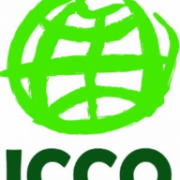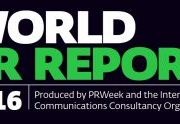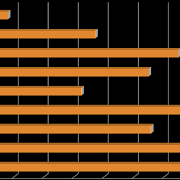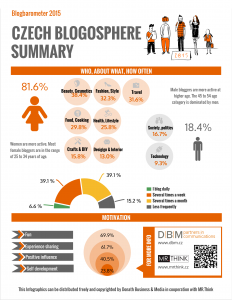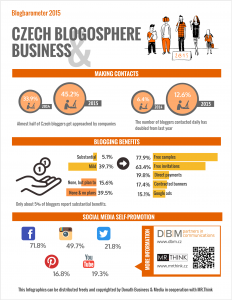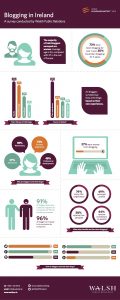An interview with Fredrik Lofthagen, CEO of Interel
Each year Interel surveys the CEOs of independent public affairs consultancies in 60 markets to gauge the health of the industry. Fredrik Lofthagen talks about the outcomes of this year’s survey and shares his thoughts on the future of public affairs.
What do you think the key takeaways from this year’s survey are?
Our clients around the world are increasingly concerned about political risk – and that’s no surprise given the recent UK vote to leave the EU and the instability that’s causing in Europe.
Further afield, the US elections are also catching the world’s attention as we grapple with what all this means and how businesses can secure a sustainable future for their customers and employees. China continues to develop as an economic and political power, but it’s a political and social culture that businesses can struggle to understand. Combine that with instability in the Middle East, North Africa, Turkey…and the conclusion can only be that political risk is the biggest worry of today. Business hates uncertainty and we certainly have plenty of that at the moment.
We’re not alone in identifying political risk as a major concern for business at the moment. PWC runs an annual CEO survey and geopolitical concern was the number two worry for respondents after over-regulation.
Of course political risk is good for business for us in public affairs, but on the whole, we find that business is not matching these concerns with spending. Spending on public affairs is still a fraction of what businesses spend on marketing for example, which I find strange, given that protecting the business and shaping the operating environment are hot topics which are keeping CEOs awake at night.
What’s your take on what the public affairs profession can do to alleviate concerns about political risk?
My take on it is that we need to do a better job of explaining the potential positive impact on a business’s bottom line of taking a proactive approach to public affairs.
Often the public affairs guys in a business are viewed as risk managers – fighting legislative proposals when they might have an adverse impact on the business. But in reality, the role of the public affairs professional is so much more than that.
Given their deep understanding of the political landscape and their ability to predict what’s coming down the line, they can, and should, play a strategic role in business. Our goal is to position the profession as strategic business partners. In many enlightened companies, that’s already the case, but we’re working to make it the case across the board.
Anticipating change and helping clients to proactively engage were highlighted by the survey as critical to success – can you give us some examples?
We often help clients to avoid legislation altogether, by being part of the discussion with civil servants and politicians, and working as partners in finding solutions that work for business, consumers and society as a whole. If legislation is imposed on you, it’s likely that the costs of compliance will be high. But if you work with legislators to find solutions that meet everyone’s objectives, then the cost burden for business is likely to be less.
We often help clients to form coalitions with other businesses in their sector, to go to legislators with solutions which address the legislators’ concerns and are workable for business. Often these solutions are accepted and legislation is avoided as a result.
We also work with our clients to identify issues which are winning public support and form coalitions around those issues. This was the case with the European Kidney Health Alliance for example, where we brought together all interest groups working on kidney disease, worked for the formation of an MEP group on kidney health and in the end, secured €1million in the EU budget for more research into and support for the disease.
Your survey found that building long term relationships with stakeholders is the strategy which has the most impact? Can you explain a bit more about the benefits of that approach?
Government doesn’t work in a vacuum and needs facts and figures, and business experience to make good law. What works for our clients is to engage regularly with those with an influence over the future of their businesses. We don’t just engage when we’ve got a problem, but build trust by sharing information which helps politicians and regulators to fully understand the business environment and the potential impact of their policy options. We firmly believe that business should be part of the democratic debate.
Social media is having more and more influence on policy makers according to your survey. What role can social media play in a public affairs campaign?
Because of social media, public opinion, and therefore government opinion, can shift in a very short space of time. Most policy makers are on twitter and other social media platforms and closely monitor reactions to their statements and proposals.
We use many of the techniques that brands use in social media to identify influencers and trends and to target our messaging at the people who can make a difference and get messages across. We mobilise public opinion and campaign using social media, to get people to sign petitions or contact their MPs for example. But like all the tools we use, social media is just one part of our armoury and we use it as part of an integrated campaign strategy.
Have you learned any tricks from the PR profession about getting a public affairs message across?
Yes, going back to what I mentioned above about informing and being part of the decision-making process, the important thing for us is to get sometimes very complicated facts across in a compelling, easy-to-understand way.
We use a lot of infographics and brochures to tell stories, show the stages in a process or share statistics. We also use a lot of video and animation.
We recently made a video for Broadcast Networks Europe using lego to tell the story of digital terrestrial television and call for more bandwidth for the service. And we also recently made an animation for a client to show how plans to deepen a quarry would work in practice and what would be done to protect the local water supply.
Attention spans are short, even in politics and it’s important to get the core of the message across in the clearest possible way and in the shortest possible time.
How do you think public affairs will evolve in the future?
I firmly believe that public affairs is going to assume more strategic importance for business. We will be more engaged with blue sky thinking about political and societal change and how that will impact on businesses, their future sustainability and their licence to operate.
We will still fight the big issues of the day on behalf of our clients in the traditional way with members of parliament and civil servants, but we will increasingly find that we and our in house colleagues spend more time preparing the C-Suite for the challenges and, importantly, opportunities which are coming down the line.
We will help businesses to shape their operating environment and will be a recognised and respected part of the democratic process. We will also become a more ‘professionalised’ discipline with transparency, codes of conduct and self-regulation by professional bodies becoming a requirement for us to engage with politicians.
Download the full survey


